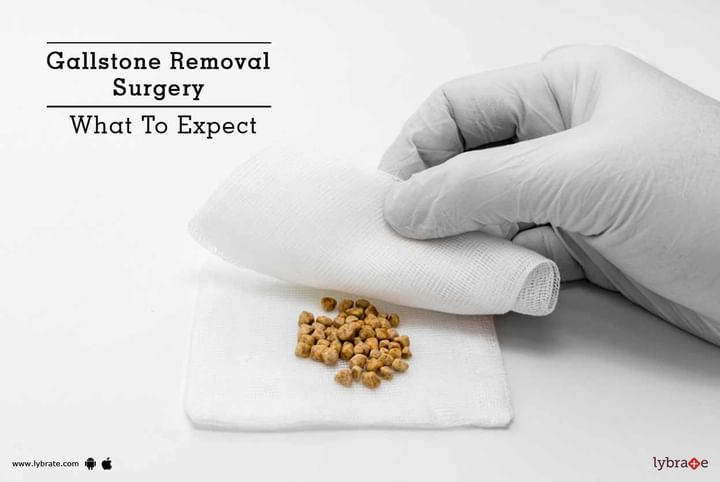Get the App
For Doctors
Login/Sign-up
Last Updated: Oct 23, 2019
BookMark
Report
Gallstone Removal Surgery - What To Expect
Dr. Amit JainGeneral Surgeon • 22 Years Exp.MCh - Surgical Gastroenterology/G.I. Surgery, MBBS, MS - General Surgery
Gallstone removal surgery is mainly of two types i.e. keyhole surgery and open surgery. In the case of the former, the patient is not required to stay in the hospital after the surgery, but in the case of the latter, the patient cannot be immediately discharged. Even though after the surgery the amount of bile that is necessary is made by the liver, still patients sometimes feel difficulty in digesting foods with fatty acids. But there are some steps which you can undertake that will give you relief from the complications that arise after the surgery.
- A proper diet: A proper diet is very necessary for the fast recovery of your gall bladder. So, introduce different food groups gradually. To start with you can have liquid foods like broth or gelatin and then progress to solid foods. You should avoid fatty foods and fried foods as much as you can. Maintain a low-fat diet. Hence, the food items which you must discard from your list includes pizzas, creamy soups, burgers, chocolate, spicy foods, meat gravies and oily foods. And probably after a month, you can start eating the high fiber foods like nuts, legumes, whole-grain bread, broccoli, cabbage and others which would help prevent constipation.
- Do some mild exercise: Exercise is essential in improving body condition in any circumstance, and gallstone removal surgery is no exception. Heavy exercise that will place stress on your wounds is not recommended. You can go for a walk or indulge in such mild workouts. Any physical activity that causes discomfort should be stopped immediately.
- Increase your fluid intake: Don’t let your body be dehydrated. Drink water from time to time. Dehydration will slow down the recovery process and also result in fatigue. Drink fruit juices too as they will not help in restoring the nutrients in your body but also prevent dehydration.
- Take care of your incision area: Taking care of the cuts is very important otherwise they might get infected. So take care of your incisions and change the bandage regularly. Wash the area carefully, and you can apply any antiseptic too but only with the advice of the doctor. You must avoid swimming pool or warm water or bathtub till the incision is completely healed.
- Take pain medications if it becomes unbearable: If you experience too much after the surgery, then you can ask your doctor to prescribe some pain medications that will help you with the pain. However, don’t panic as the pain is completely normal in the initial days and you may even feel pain in other portions of the body like your shoulders as well.
With these points in mind, you will be able to recover very fast and resume your normal day-to day activities in no time.



+1.svg)
